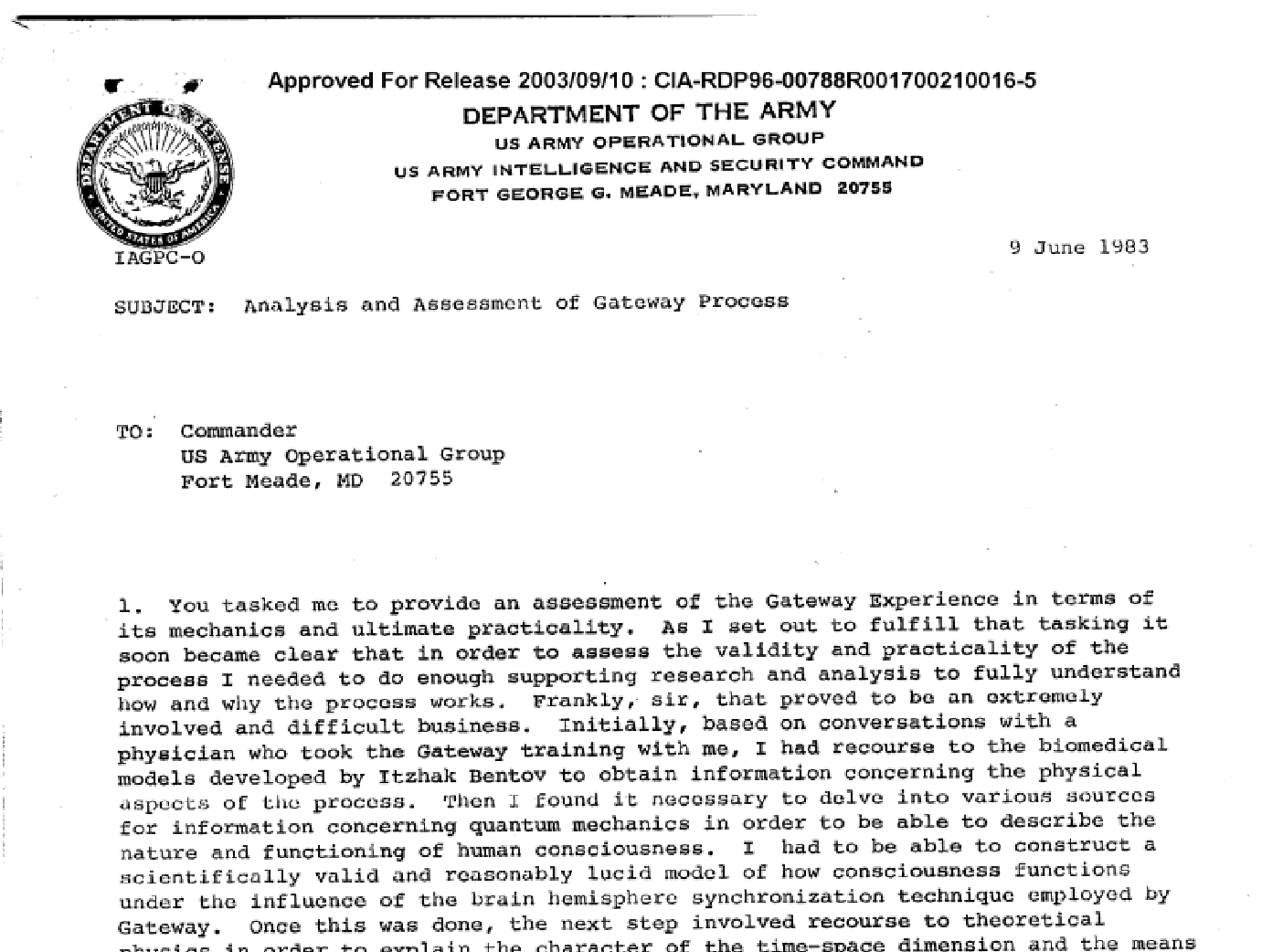The Gateway Experience is a training system designed to bring enhanced strength, focus and coherence to the amplitude and frequency of brainwave output between the left and right hemispheres so as to alter consciousness, moving it outside the physical sphere so as to ultimately escape even the restrictions of time and space. The participant then gains access to the various levels of intuitive knowledge which the universe offers.
The Gateway Experience was introduced by the Monroe Institute of Applied Sciences. In 1958, Robert Monroe, a New York broadcasting executive, began having experiences that drastically altered his life. Unpredictably, and without willing it, Monroe found himself leaving his physical body to travel via a “second body” to locales far removed from the physical and spiritual realities of his life. Monroe’s 1971 book Journeys Out of the Body is credited with popularizing the term “out-of-body experience”. The Monroe Institute continues to offer training in the Gateway Experience today.
One of the alleged phenomena associated with this altered state of consciousness is remote viewing. Remote viewing is the practice of seeking impressions about a distant or unseen target using extrasensory perception (ESP) or “sensing with the mind”. In the context of the Gateway Experience, it’s believed that once an individual has achieved an altered state of consciousness, they can view real events with only the power of their mind.
The Gateway Process
The Gateway Process involves a system of binaural beats to create a frequency following response (FFR) by the brain-wave rhythms. The FFR not only gives some control over the brainwave transmission of each hemisphere, but it also promotes brain-wave synchronization between the two hemispheres. While the program was designed with the intention of exploring human consciousness and its potential, it has been met with skepticism and criticism.
Some critics question the scientific validity of the Gateway Experience. The program’s reliance on concepts like astral projection and out-of-body experiences, which are not widely accepted in the scientific community, has led to doubts about its credibility.
The Gateway Experience has been criticized for its associations with the occult. Despite efforts to frame the program in the language of physical science, some critics argue that it still carries the stigma of its occult connotations.
The potential military applications of the Gateway Experience have also been a source of controversy. The program was initially developed for use by the U.S. Army, and there have been concerns about the ethical implications of using such techniques for military purposes.
In June 1983, Wayne McDonnell, an Army commander, was tasked by the CIA to provide an assessment of the Gateway Experience. McDonnell had completed the seven-day psychic program the month prior at the Monroe Institute. His assessment formed the basis of a 29-page Army document that featured detailed explanations of hypnosis, holograms, and out-of-body experiences.
The CIA’s involvement in the Gateway Experience was part of its broader interest in psychic research and mind control during the Cold War. The Gateway Experience was seen as a potential tool for altering consciousness and achieving objectives such as remote viewing, which is the ability to view real events with only the power of the mind. The CIA was interested in these phenomena as they could potentially be used for intelligence gathering and other strategic purposes.
Declassification
The CIA declassified the documents related to the Gateway Experience in 2003. The declassification was part of a larger release of documents related to the agency’s research into psychic phenomena and mind control during the Cold War. The declassified documents have since sparked renewed interest in the Gateway Experience.
The declassified documents do not provide a clear assessment of the success or effectiveness of the Gateway Experience in achieving these goals. It’s also important to note that the CIA’s involvement with the Gateway Experience ended decades ago.
The declassification of the Gateway Experience documents by the CIA has also led to speculation and controversy. Notably, a page from the original report was missing when the document was declassified, leading to speculation about what information it might have contained.
Final Thoughts
The Gateway Experience represents a fascinating chapter in the history of the CIA and its exploration of human consciousness. The program, developed by the Monroe Institute, aimed to harness the power of the human mind for purposes beyond our physical realm.
The CIA’s involvement with the Gateway Experience, part of its broader interest in psychic phenomena during the Cold War, underscores the lengths to which intelligence agencies have gone in the pursuit of knowledge.
While the Gateway Experience and its potential applications, such as remote viewing, remain controversial and not widely accepted within the mainstream scientific community, they continue to captivate those interested in the mysteries of human consciousness and the untapped potential of the mind.
As we continue to explore the frontiers of human consciousness and cognitive abilities, programs like the Gateway Experience serve as reminders of the infinite possibilities that lie within the realm of the human mind.
Resource
ANALYSIS AND ASSESSMENT OF GATEWAY PROCESS (cia.gov)
*The views and opinions expressed on this website are solely those of the original authors and contributors. These views and opinions do not necessarily represent those of Spotter Up Magazine, the administrative staff, and/or any/all contributors to this site.
